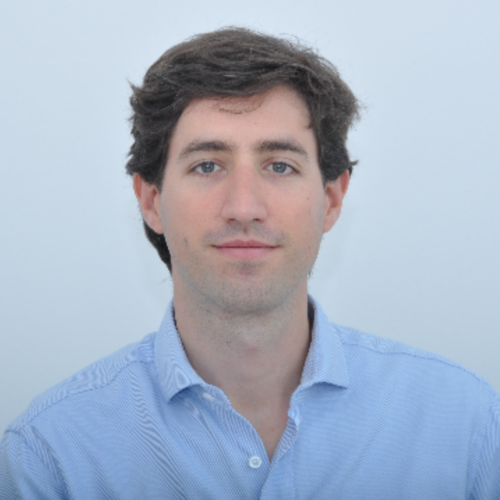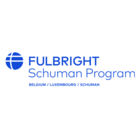This program year, we are excited to have four grantees in the Fulbright-Schuman European Union Affairs Program, a program managed by the Fulbright commission in Belgium that sends EU citizens to the US and US citizens to various EU countries. Below you can read more about the research projects our four Fulbright-Schuman grantees—two from Austria and two from the US—are pursuing with their grants.
Introducing our 2021–22 Fulbright-Schuman grantees
14 October 2021Read more about our four Fulbright-Schuman grantees and their projects.
Pia Andres
Austrian Fulbright Student
Fulbright-Schuman European Union Affairs Program
Addressing climate challenge requires a transformation of the global production system to clean technology at an unprecedented scale and speed. For the past few decades, many governments have therefore provided support to clean technology R&D and deployment, including subsidies, quotas, and tax credits. In the electricity sector in particular, renewable energy technologies such as wind and solar have seen considerable increases in scale and reductions in cost during this time, a significant part of which can undoubtedly be attributed to government support. However, such measures are often tied to promises of local growth and local “green jobs” and have therefore sparked trade tensions on multiple occasions. Two of the most prominent examples are the US-China and the EU-China solar trade wars in 2012.
 © Hyeonju Kwon
© Hyeonju KwonThe purpose of my project is to examine the implications of this “green race” mentality and associated protectionist tendencies for the global shift to a green economy by modelling country-level incentives to support and protect clean sectors in a game theoretic model. My faculty host at Columbia University is an authority in the field of modeling international climate cooperation using game theory and is able to provide crucial guidance that is not available at my home institution. Moreover, visiting a US institution allows me to experience US academic culture, forge new transatlantic professional relationships, and gain better insights into how people in the US think about issues related to trade and the climate.
Jonathan LoTempio
US Fulbright Student
Fulbright-Schuman European Union Affairs Program
Science diplomacy is a multidisciplinary field that leverages expertise in domestic and international policy and relevant research-based disciplines—in my case, this includes the science and policy pertinent to genomic data, including sequence data and their associated metadata. In addition to interviews and quantification of funding and data flows, my approach includes historical and archival research because there have been decades of development into the international data-sharing and the ethical, legal, and social implications of genomics. I hope this project contributes to our knowledge of the past and present of the genomic data-sharing ecosystem so we can better know what works and what could work better in the future.
 © Emma Pollock
© Emma PollockThere are very few places where a researcher can sit at the intersection of genomics, policy, and the history and philosophy of science. The Institute for Advanced Studies / Institut für Höhere Studien Wien has a robust team of scientists and philosophers, and the Science, Technology, and Social Transformation Research Group is studying responsible innovation, genomics, and science diplomacy, among many other topics—I primarily wanted to learn from and work alongside that team. Vienna is also the home to long-running diplomatic and scientific initiatives, as well as a home to the United Nations—this will provide contrast and context for the second semester of my grant, which will be spent in Brussels.
Apart from my semesters in Vienna and Brussels, I intend to take a few key trips to conduct interviews with experts and decision makers in the sciences, diplomacy, and the history of science, with the aim of gaining insight into the European and international systems. If all goes according to plan, this will include trips to Munich, Paris, Rome, and Copenhagen, but this will likely change as I learn more in the process of completing the grant and from my colleagues in Vienna and Brussels.
Fabian Schipfer
Austrian Fulbright Scholar
Fulbright-Schuman European Union Affairs Program
During my PhD and postdoc at TU Wien as well as at the Bioeconomy in Transitions group in Rome and the International Institute of Applied Systems Analysis (IIASA), I was allowed to explore a wide variety of aspects regarding a current mega-challenge: How can we gradually stop emitting greenhouse gases while providing opportunities to an ever-increasing share of the earth's population? Within my focus area—the transformation of the energy system in the upcoming decades—I touched base with scientists around the world, looking at how we involve the biosphere in our economic activities today and in the future.
 © Johannes Radl
© Johannes RadlMy work so far includes the environmental and economic optimization of bioenergy supply chains, quantifying potentially relevant developments of biochemical production, and analyzing the function and organization of energy commodity markets and multi-level governance discussions. My methods are characterized by interdisciplinary research, often based on the team efforts of co-authors from different European countries and the United States.
As I am pursuing my dream of an academic career, I have to face critical questions: What is the scientific added-value of my skill-set and theories, how can I sustainably contribute to societal and technological development and, first and foremost, how can I finance this work?
Distilling the essence of my relatively young career, the notion of quantifying the benefits of the strategic and robust involvement of the primary economic sectors—excluding coal mining and oil and gas extraction—comes to the fore. Agriculture, forestry, and the blue economy (e.g., algae) have much to offer in terms of food, material, energy, ecosystem and negative-emission services. These sectors can be further summarized as the “bioeconomy.” Energy system models are used to simulate potentially relevant futures, to inform coordinated action and strategic planning. But a novel set of tools is needed for these models to enable them to account for the systemic benefits of a bioeconomy designed for providing, for example, resilience and stake- and shareholder diversity. My goal is to establish a circular bioeconomy modeling group in Austria with a steady exchange of pre- and postdocs between the continents that can develop respective modeling tools and effectively distribute them among engaged scientists around the world.
At Lawrence Berkeley National Laboratory (LBNL), I am part of the Sustainable Energy and Environmental Systems Department. The LBNL offers the optimal environment to develop the core concepts and ideas I have been working on and to assess their groundbreaking potential and feasibility. LBNL experts are excited to co-develop and crossbreed basic research questions, methodologies, and scientific practices while exploring differences and nuances between the EU- and US-specific approaches and realities. LBNL ties to the University of California and Stanford and my already established professional connections in the Idaho National Laboratory (INL) and the Department of Energy (DOA) increase the chances of generating high-impact results. This way, the Fulbright Schuman postdoctoral research grant helps me to pursue my ultimate dream.
Shea Rhodes
US Fulbright Scholar
Fulbright-Schuman European Union Affairs Program
The title of my project is “Discouraging the Demand: Combatting Commercial Sexual Exploitation and Human Trafficking.” I intend to research whether a key provision of the Protocol to Prevent, Suppress and Punish Trafficking in Persons (Palermo Protocol) has been implemented in Austria and Sweden. In addition, I plan to research survivor-centered approaches to combatting human trafficking and, hopefully, to teach a seminar on trauma-informed lawyering skills when working with human-trafficking survivors.
I am affiliating in Austria with the Organization for Security and Cooperation in Europe (OSCE), which is located in Vienna. The OSCE is the ideal host institution in Austria because it has a mandate to effectuate policy reforms at the highest levels of government for all participating countries. This includes the implementation of commitments and full usage of the recommendations set forth in the OSCE Action Plan to Combat Trafficking in Human Beings.
 © Ryan Brandenberg
© Ryan BrandenbergI will also be visiting Sweden. Austria and Sweden present uniquely effective locations to study commercial sexual exploitation because of their divergent legal and policy responses regarding the sex trade. Austria has legalized the sale and purchase of sex and has established regulation of the commercial sex industry. Sweden follows the Nordic Model, which has decriminalized the sale of sex, criminalizes the purchase of sex, and provides resources to those who want to exit the commercial sex trade. It is important to understand the differences and commonalities in each country’s legal framework in order to study what strategies are effective in reducing human trafficking. The legal structures addressing human trafficking differ, but the root causes of human trafficking, including the fact that the demand for commercial sex drives the market for human trafficking, remain the same.
